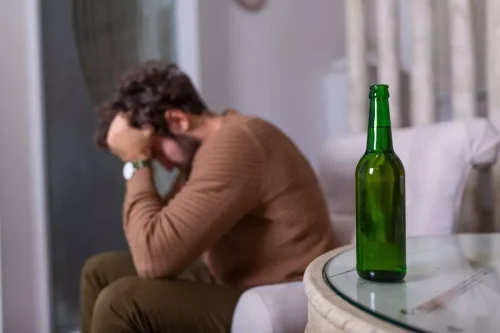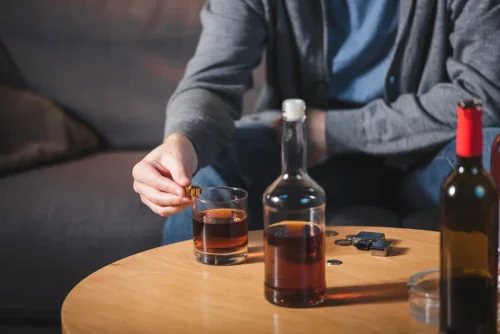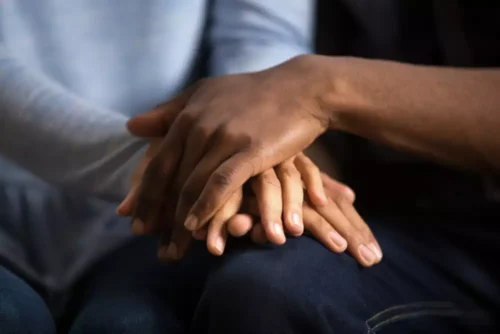
An attitude of gratitude starts small but leads to radical shifts in our relationship to the entirety of earth’s natural world if we practice reciprocity. It can lead to seeing the land surrounding us as our home, not as property we own. In Kimmerer’s words, those who immigrated to America must find a way to become indigenous to this land. Feeling grateful triggers positivity that reflects in your subconscious mind influencing your behavior towards people around you. Being able to recognize all those who help us get through life brings a sense of radiance into our everyday demeanor setting an example that paying it forward only leads to prosperity.

What Are Simple Ways to Practice Gratitude Every Day?
- When we are optimistic we see good outcomes in even the most trying situations.
- This helps us to see and appreciate the good things in our lives now.
- Of course, gratitude also means you’re more likely to be motivated for self-care like exercise, healthy meals, and rest – and that will also go on to significantly impact your health and wellbeing.
- When someone is struggling with a substance use disorder, their sleep quality is usually severely impacted.
‘Passive recovery is taking a true rest day where the body is not under any stress from running or any other physical activity, apart from normal daily movement,’ says Booth. That can be as simple as staying off your feet, whenever possible. But it can also include other activities outside of exercise that can benefit your body – think getting a massage, foam rolling, using compression boots or meditation. Viewing difficult circumstances in this way https://ecosoberhouse.com/ will also help you avoid relapse and deal with short-term lapses in a more positive and effective way. Practicing gratitude in your everyday life is more than just saying “thank you” or being internally thankful for a life that is free from addiction. Practicing gratitude is using your behavior to be an example of a person whose actions are guided by the principles of the 12 steps and then sharing that goodness with other people in your life.
- In recovery, we are given the space to be grateful, but it still takes time to practice and train the mind to notice and cherish the beauty in life.
- From Aesop to Oprah Winfrey, the power of gratitude has transformed lives and healed relationships.
- The key to practicing gratitude in recovery is to make it a habit.
- The intensive outpatient treatment option meets for group therapy 3 days a week, and the individual also has 1 private individual session each week.
- In this section, I will discuss the various ways in which gratitude can aid in addiction recovery.
FAQs about The Power Of Gratitude In Addiction Recovery: Cultivating A Thankful Mindset
Addiction strips away all the good things in life; health, happiness, contentment … you name it. Taking a moment to think about something good you have now can serve as a reminder of how far you’ve come since your addiction. Remembering the way your life was when you were addicted doesn’t have to drudge up feelings of regret or sadness. Instead, it can improve your gratitude and remind you that the fight to stay sober is worth the effort. It can be easy to think that once you finish addiction treatment, everything will be “fixed.” Unfortunately, that is far from the truth. Instead, recovery is a lifelong commitment that requires a great deal of time and effort, and well, practicing gratitude in recovery is a critical aspect of the entire process.
Gratitude Helps You Focus on What Really Matters
- When you do this, you’ll start to unconsciously and effortlessly practice gratitude throughout the day.
- But what happens for most is when we start to think those judgemental and negative thoughts we think of more things about the person or situation we don’t like.
- Active addiction can create a lot of negative emotions, such as shame, guilt, or regret, that can linger even after you stop using drugs or alcohol.
- Making an effort to practice gratitude regularly can have an incredibly positive impact on your mental health.
- The less-intensive treatment option meets for group therapy 1 day a week.
- If you’re having difficulty staying clean or battling cravings, it might be best to seek help at a reputable drug rehab center.
Gratitude encompasses everything in life, including people, states of being, feelings, opportunities, and emotions. Gratitude is something that will why is gratitude important in recovery stay with you for a lifetime if you take the time to practice it. This is extremely beneficial, as gratitude can negate the rise of the ego.

Keep a gratitude journal
Practicing gratitude by thanking someone who lets you cut in line in the supermarket because you only have one item is an appropriate way of showing gratitude and ingraining it into your own practices. If you started to expect such a favor all the time, however, your entitlement could lead to refusal and then hostile thinking. Gratitude for even the smallest courtesies can promote a consistent sense of thankfulness. If someone holds the door for you or lets you merge into traffic on a busy road, make a conscious effort to be grateful.
Gratitude is Good for Your Body, Mind, and Spirit
It’s not just a feel-good emotion; gratitude has been scientifically proven to have a significant impact on mental health. In this section, we’ll explore the definition of gratitude and how it can affect addiction recovery. We’ll also dive into the numerous science-backed benefits of practicing gratitude, including its ability to reduce stress, improve sleep, and cultivate self-esteem.

You’ll Feel Better

